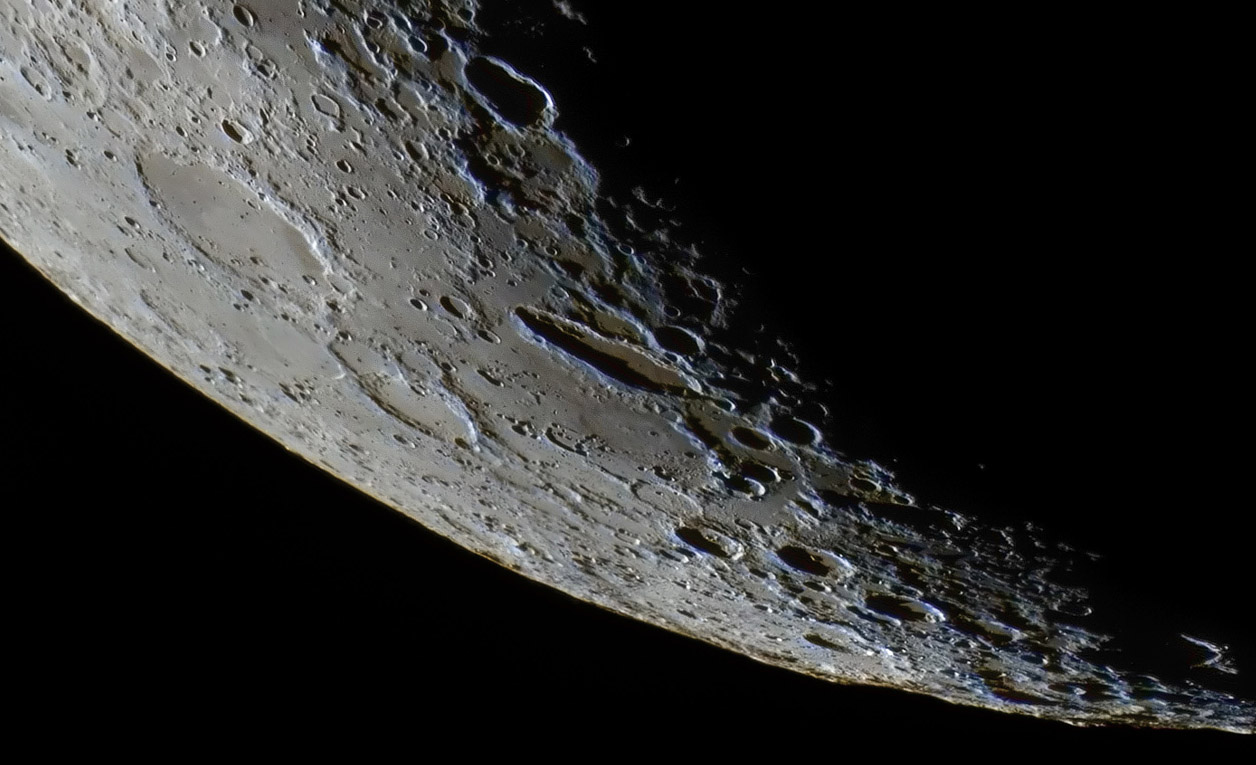
image by Dominique “Dodi” Dierick, Belgium
Some LPODs are scientific lessons, others are high resolution wonders and others are just gorgeous. This portion of an entire crescent falls in the latter category. This color view of a tapering southwest limb has good resolution and depicts many interesting features: do you see Bailly, the Schiller-Zucchius basin and the reflective Wargentin? But what I like are the colors, especially the silver-blue of crater rims that give the hint of a fantasy moon with snow at high elevations. And the tan hues - darkening to a muddy bronze in Schiller - remind me of perhaps the most evocative map of the Moon ever, the Klepesta and Lukes 1960 Map of the Moon - why isn’t there an image of it online?.
Technical Details:
Mewlon 210 telescope, a DMK 41AF02 monochrome camera and a Canon 20D reflex.
Related Links:
Rükl charts 62, 70 & 71
Dodi’s twilight zone of photography
COMMENTS?
Click on this icon File:PostIcon.jpg at the upper right to post a comment.



